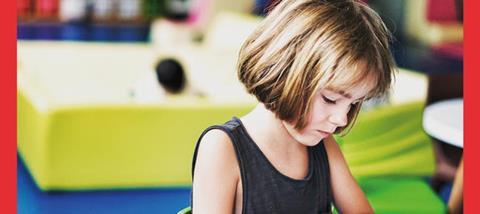
To download Schools’ work as a PDF, click here.
Jesus said: “Truly I tell you, unless you change and become like little children, you will never enter the kingdom of heaven” (Matthew 18:3).
Jesus has much to say about the spirituality of children, and this statement is one of the clearest. Whatever your understanding of the kingdom of heaven, Jesus clearly seems to be saying that there is something special about the spiritual understanding children hold. Research backs this up. Children under 11 experience the sacred more readily even than older children, and certainly more than adults, who have often been conditioned, or have conditioned themselves, to a certain ‘right way’ of considering the sacred.
Rebecca Nye, among others, has found that awareness of the spiritual is common and natural to children of all faiths and none (see The Spirit of the Child by David Hay with Rebecca Nye). Indeed, a child’s awareness and understanding of spirituality often impacts the adults around them, bringing something that challenges the adults’ expectations. You probably have your own experience of this. When was the last time your view of God was challenged or changed by something a child has said or done? Those of us who work regularly with children will know that they have moments of profundity that amaze us time and time again.
There is something special about the spiritual understanding children hold
When did you have your most profound experience of the sacred? According to one study, around a quarter of adults reported that their most significant spiritual experience happened during childhood. This goes hand in hand with reports that the vast majority of believers today can trace this decision back to before they turned 18. Put this together with reports that suggest children who have a good spiritual understanding will be more resilient as teenagers and adults, are less likely to suffer from depression and more likely to have better emotional well-being, and we begin to build a picture of just how crucial it is that we encourage our children to develop their understanding of spirituality and their often very relational connection with the sacred.
With schools having their budgets squeezed, the devastating consequences are often the loss of subjects that can help our children build these connections and develop their spirituality: music, art and drama, among others. However, one very positive recent trend in our primary schools is the rise of ‘outdoor education’ with forest schools and the like.
Taking our children outdoors and getting their hands, knees and clothes dirty means less time at desks and on screens. It also gives them more opportunity to enjoy, recognise and revel in the sacred. It gives them a chance to notice the intricacies of a bird’s nest, the resilience of trees or to wonder at how quickly a tree grows from a seed to a 7-metre high behemoth. Just this weekend my family and I helped to plant more than 100 trees on our school field. We wrenched our two boys away from their screens and they loved the experience.
In Spirituality as a Natural Part of Childhood, Rebecca Nye says that children need three things to develop their spirituality, and they all apply at home, at church and at school: “Children need to be listened to, they need a safe space, with no agenda or judgement but with openness to hear what children have to say, the questions they have to ask and to join with them in their wonder.
“They need humble and respectful adults, those prepared to take part without their own agenda. Adults who are not approaching their work with children as an opportunity to inform or change a child’s point of view, but for the joy of getting a glimpse of the child’s view of the sacred and divine.
“And finally they need space: physical, emotional, auditory space. My own 9-year-old really struggles with Sunday school (and in fact school, church and other communal spaces like tennis club) because of the noise levels that often go hand in hand with groups of children in one space. Just this morning he had a short but very intense reaction to walking into the room where they hold Sunday school because of the noise. He’s an introvert with some sensitivity to noise levels and not many places in our world today cater for him. When we consider the spaces we hold for our children, we must try to ensure that these are safe spaces for all, whether they are loud and noisy or quiet and reserved.”
Supporting documents
Click link to download and view these files966947.pdf
PDF, Size 0.21 mb































